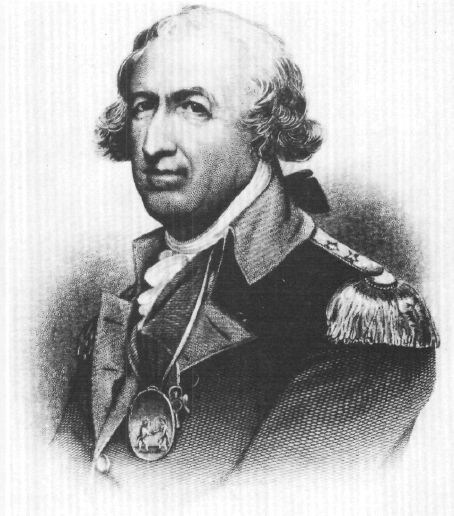Conceived in Liberty (234 page)
Read Conceived in Liberty Online
Authors: Murray N. Rothbard

The conservatives of Philadelphia were able to organize a mass meeting of their own on May 21, as well as a remonstrance of 6,000 people to preserve the old government. This meeting was led by John Dickinson, Charles Thomson, and even Joseph Reed. Other conservative protests against the May 20 meeting came from the Committee of Inspection of Philadelphia County and from Chester County in eastern Pennsylvania. On the other hand, the York County committee soon demonstrated its power by forcing the York assemblyman James Rankin into a public recantation of the “bad tendency of my past conduct” in advocating the old Pennsylvania government. Citizens of Reading in Berks County burnt the conservative remonstrance as treasonable, and hundreds of Philadelphia signers shifted and withdrew their signatures. The numerous and powerful associations throughout Pennsylvania, superbly organized by Professor Cannon, joined the call for a new government and a constitutional convention. The tide of radical opinion was indeed swift; not even repeated concessions by the assembly could stem its flow.
The Pennsylvania Assembly, bewildered at seeing its public support rapidly dwindling, decided to wither away and allow Pennsylvania’s great internal revolution to be bloodless. In this resolve, it was aided by Assemblyman Joseph Reed; on June 8 the assembly withdrew its November instructions to the delegates to the Continental Congress to oppose independence. The delegates were now authorized to adopt any measures they deemed necessary. To block any attempt by moderates to preserve the moribund assembly by taking charge of the forthcoming convention, radical members boycotted assembly meetings after June 13, thus preventing the gathering of a quorum. The Pennsylvania Assembly drifted into hopeless adjournment on June 14.
On June 18, the government of Pennsylvania changed hands in a peaceful but impressive revolution. The provincial conference met on that date, with delegates selected by the radical county committees. The conference itself dramatized the thorough transformation of political power. None of the old conservative or moderate Whig leaders were present: no Dickinson, no Thomson, no Mifflin, no Wilson, no Reed, no Morris. Fully half the delegates were leaders in their local military associations. The conference looked to the vanguard Philadelphia Committee for leadership, and here the only old-line Whig in prominence was Thomas McKean, who was
chosen president of the conference. That venerable opportunist, Benjamin Franklin, never one to be in any minority, had seen the way the wind was blowing and allowed himself to be included temporarily among the Left. He nominally headed the Philadelphia delegation to the conference, but never attended meetings. Apart from McKean, the leading delegates from the Philadelphia Committee were Committee President Christopher Marshall, Dr. Benjamin Rush, and Col. Timothy Matlack, with Cannon, Paine, and Rittenhouse active in the background.
The provincial conference began its work quickly; The assembly was declared abolished and a constitutional convention summoned for a new government based on the people of Pennsylvania. The suffrage for the convention was to be widened to all adult taxpaying associators. (Unreconstructed Tories were denied the privilege.) A more serious blow to liberty was the conference’s decision to require an oath of Christian belief for all those elected as deputies to the constitutional convention. This oath —an effort to disfranchise the Quakers—opened a bitter debate between the elderly Christopher Marshall and the other, far younger, leaders of the radical camp. Marshall strongly supported the religious test oath against the vigorous opposition of Rush and especially Cannon, who privately denounced the supporters of the oath as “fools, blockheads, self-righteous, and zealous bigots.”
Representation at the convention was not allocated proportionately and democratically; understandably, exhilirating vengeance against the old overweighting of the east led to an even greater overweighting on behalf of the west. Each county was given eight delegates to the constitutional convention, so that sparsely settled western counties enjoyed almost the same representation as Philadelphia.
On June 24, the provincial conference surprised no one by declaring that George III had forfeited American allegiance and voting to concur in any declaration of independence. By late June, Pennsylvania was firmly in the camp of the proindependence radicals; indeed, the outcome had been clear since the beginning of June.
As for Gov. John Penn, of the proprietary family, he was generally sympathetic to the American cause and gave little trouble about his disappearance from the political scene. Indeed, he was content to remain a private citizen of the new commonwealth of Pennsylvania.
Where Pennsylvania went, little Delaware could not be far behind. The two were almost one province, having the same proprietary governor. Delaware, too, had retained its old assembly and governmental structure after Lexington and Concord. Its three delegates to the Continental Congress were Thomas McKean, a radical; George Read, an archconservative; and Ceasar Rodney, a centrist. By the end of 1775, Rodney had shifted
leftward, winning the delegation for the American cause. Pennsylvania’s opting for independence quickly convinced Delaware. On June 14, McKean presented to the Delaware Assembly the May 15 resolution of Congress along with the recent resolutions of Pennsylvania. On June 15, Delaware removed the restrictions that prohibited its delegates from voting for independence, which had been in force since March 1775, when the delegates were instructed to aim for reconciliation with the mother country. Now, in imitation of the Pennsylvania Assembly’s resolve of June 8, the Delaware Assembly ordered its delegates to concur with other delegates in favoring whatever measures may be necessary for the interest of America. The way was clear for the Delaware delegation to vote for independence.
*
William H. Nelson,
The American Tory
(Oxford: Clarendon Press, 1961), p. 129.
*
See Nelson,
American Tory,
pp. 128–30.

Courtesy of the New-York Historical Society, New York City.
Tom Paine
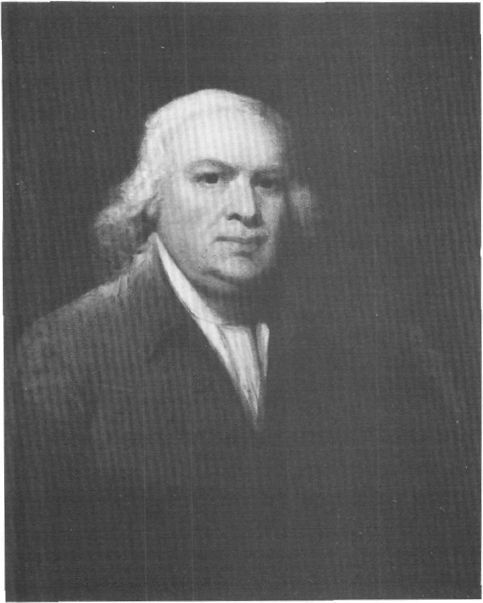
Courtesy of the New-York Historical Society, New York City.
Robert Morris

Courtesy of the New-York Historical Society, New York City.
Nathanael Greene
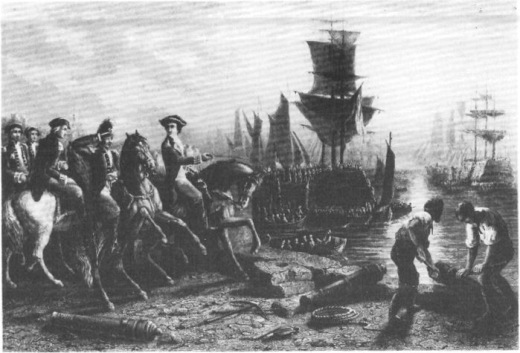
Courtesy of the New-York Historical Society, New York City.
General Howe Evacuating Boston, March 1776
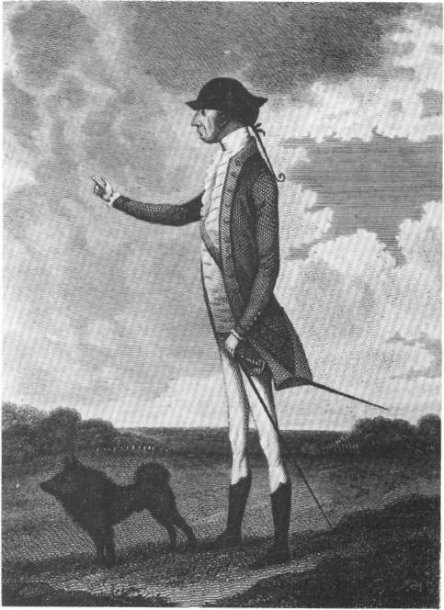
Courtesy of the New-York Historical Society, New York City.
Charles Lee
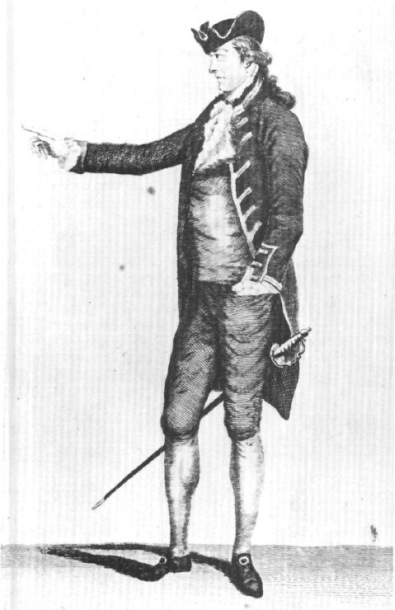
Courtesy of the New-York Historical Society, New York City.
Sir Richard Howe
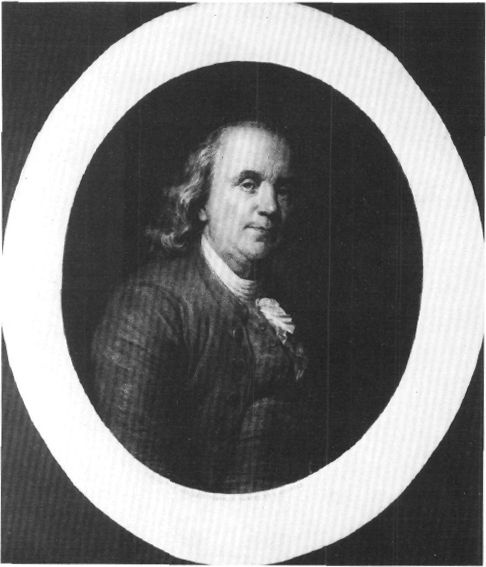
Courtesy of the New-York Historical Society, New York City.
Benjamin Franklin
